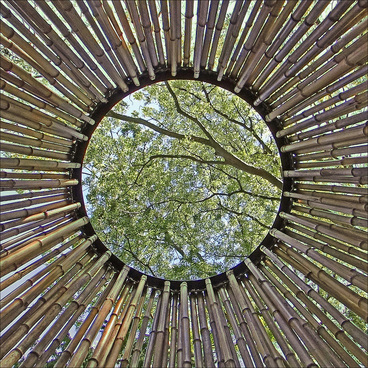|
Proposals due 18th January 2016. Unexpected Encounters with Deep Time: Violence Read more over at the Edinburgh Environmental Humanities site.
 Participation chinoise au pavillon de la Finlande Jean-Pierre Dalbéra (CC BY 2.0) Participation chinoise au pavillon de la Finlande Jean-Pierre Dalbéra (CC BY 2.0) 16th June 2015 12:00 – 17:00 Andrew Grant lecture Theatre, 2.13 Evolution House, West Port, Edinburgh The final event in a series of workshops run by the Edinburgh Environmental Humanities Network and sponsored by IAD and ECA. The interdisciplinary nature of the Environmental Humanities calls for multiple kinds of collaboration, including teams from multiple research areas, researchers working with practitioners and humans working with non-humans. At the same time, however, the research area has arisen within a context where 'collaboration' is often experienced as an imperative imposed by funders, universities and governments. In this workshop then we will seek to explore the fraught nature of collaboration and what benefits or drawbacks it might have for those engaged in environmental research from an arts and humanities perspective. The event will include a series of reflections from collaborative pairs who will explore the why, how and how well, of their various projects. Contributors include:
In the spirit of the workshop we'll start with a potluck lunch before moving into the discussions. So please bring a dish to share. To book a place please email Michelle.Bastian@ed.ac.uk This Wednesday the Edinburgh Environmental Humanities Network will be hosting our next event in a series looking at how core research practices might be reshaped from an EH perspective. Following on from Teaching and Writing we will now be looking at Creating. The events is free and everyone welcome. Creating in the Environmental Humanities2 - 5pm, Thursday 14 May 2015 Lecture Theatre O17, Hunter Building Edinburgh College of Art, Lauriston Place, EH3 9DF Twitter Feed: #CitEH Presenters:
Hollis Taylor (violinist/composer, zoömusicologist, University of Technology, Sydney) Creativity, originality, genius: Lessons from zoömusicology How and when does music become possible? Is it a matter of biology, or culture, or an interaction between the two? In this talk (with accompanying video and audio), I challenge the notion that because birdsong serves evolutionary functions, it cannot have aesthetic value and be profitably studied by musicologists. My fieldwork focuses on the song, dance, and art of three species of Australian songbird: the pied butcherbird, the lyrebird, and the bowerbird. While much arts discourse leads us in the direction of creativity, originality, and transcendent genius (and the prestige accorded them), avian aesthetics remind us of the significance of mimicry, borrowing, repetition, and recombinatoriality to the creative process. Jo Mango (singer-songwriter, lecturer, University of the West of Scotland) The Black Sun, The Moth and The Moon: songs in search of a 'domain common to both language and being' This performative talk will explore practice--‐based research centred around two original songs: The Black Sun, which explores possibilities of what Foucault called 'the domain common to both language and being' via meditations on Starling murmurations; and The Moth and the Moon, which attempts to enliven Deleuze and Guattari's notions of 'becoming-other' (the universe singing the bird) with the weaving together of images and sounds associated with embodied knowledge. Rob St. John (artist--‐composer, researcher, University of Glasgow) Sounding the anthropocene: the sonic geographies of complexity, uncertainty and disintegration This talk will discuss the potential of the creative use of environmental sound (particularly birdsong) as a form of experimental geography, where spaces, places and landscapes can be speculatively (re)imagined in response to environmental change, complexity and degradation. It will draw upon a number of recent projects covering work with disintegrating tape loops soaked in polluted river water, birdsong animating a new urban concrete tower, and the sonic geographies of fragmented bird migration routes which follow a similarly disintegrating 19th-century undersea communication cable from the Mediterranean to Britain. Chorus (Respondants): Matt Brennan (Reid School of Music, University of Edinburgh) Peter Nelson (Reid School of Music, University of Edinburgh) After: wine reception To book a place email Andrew Patrizio: a.patrizio@ed.ac.uk |
Archives
November 2022
Categories
All
|
 RSS Feed
RSS Feed
